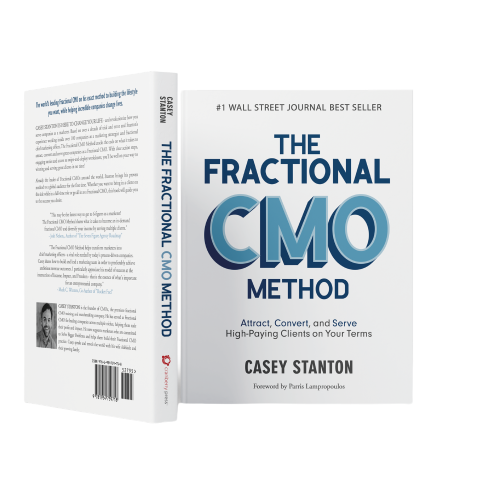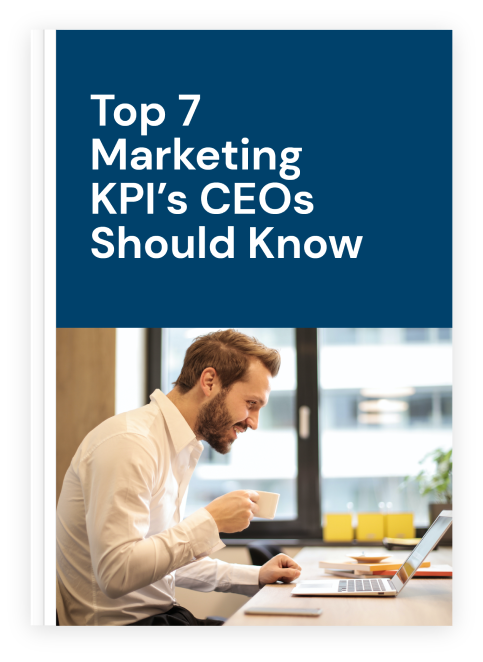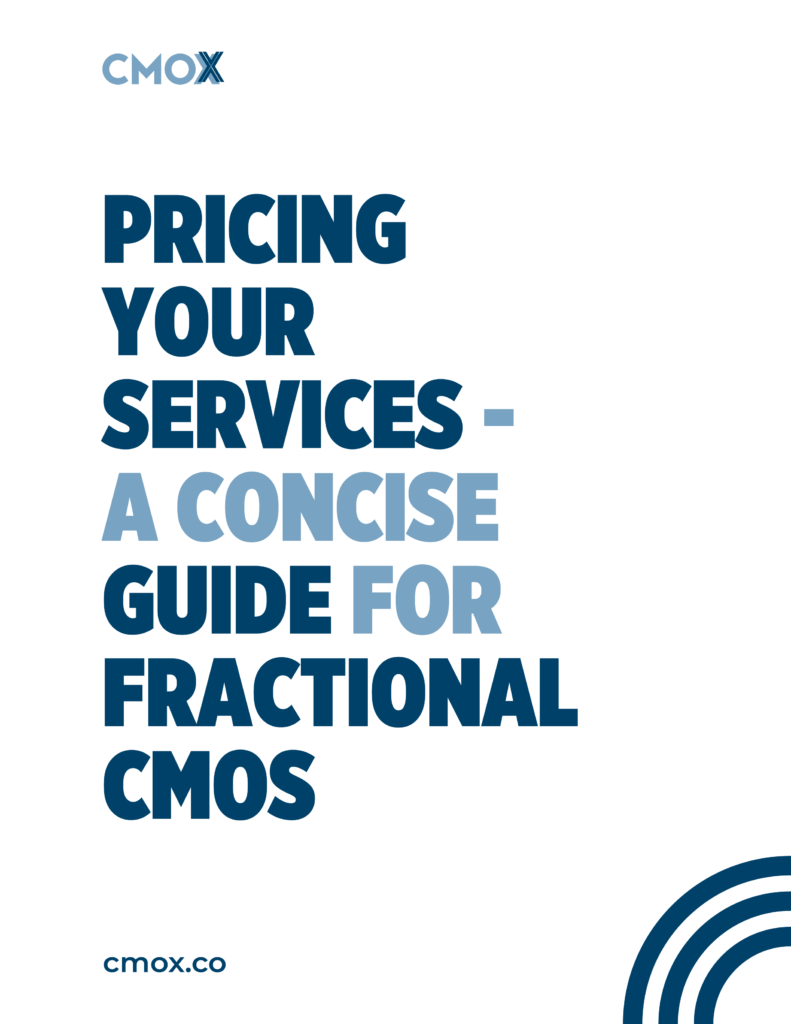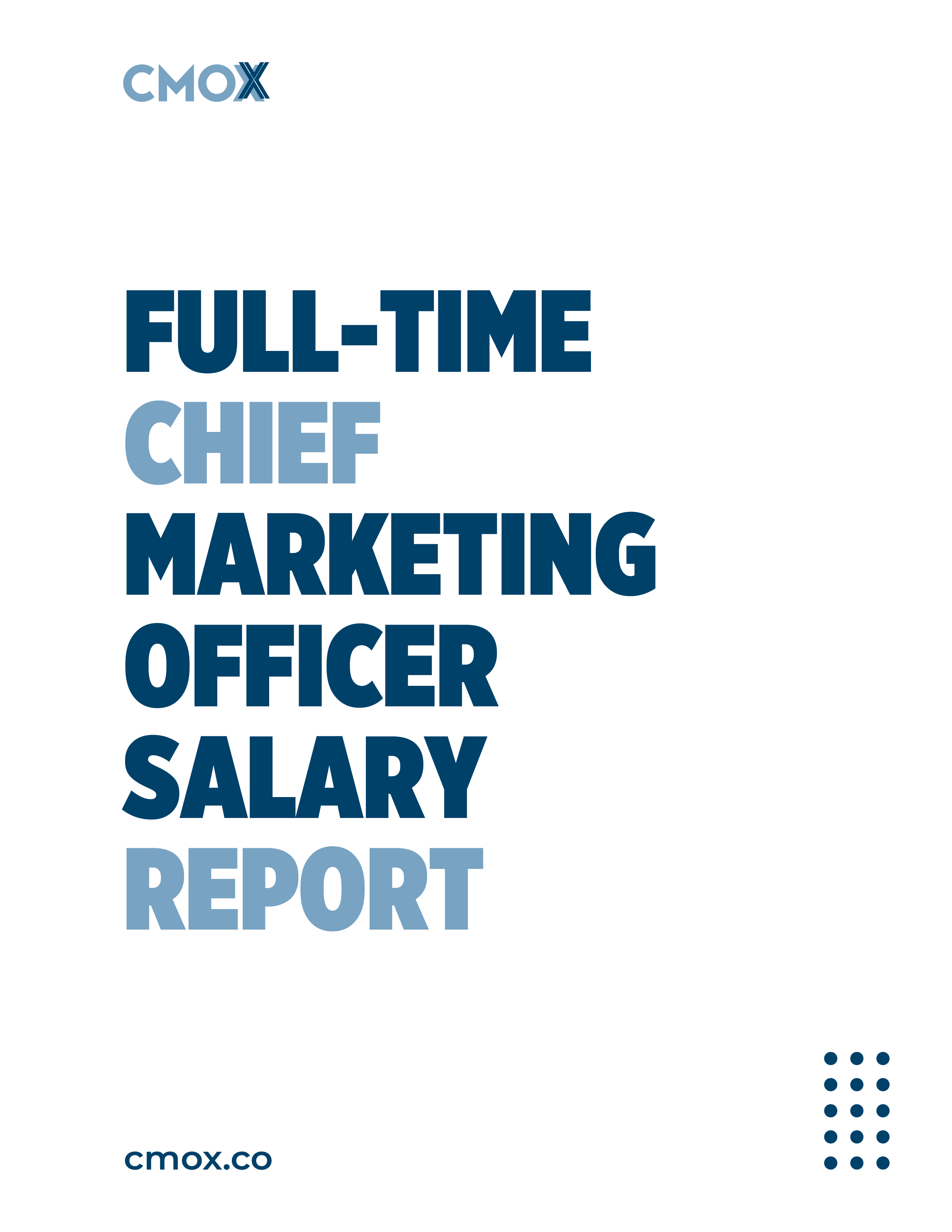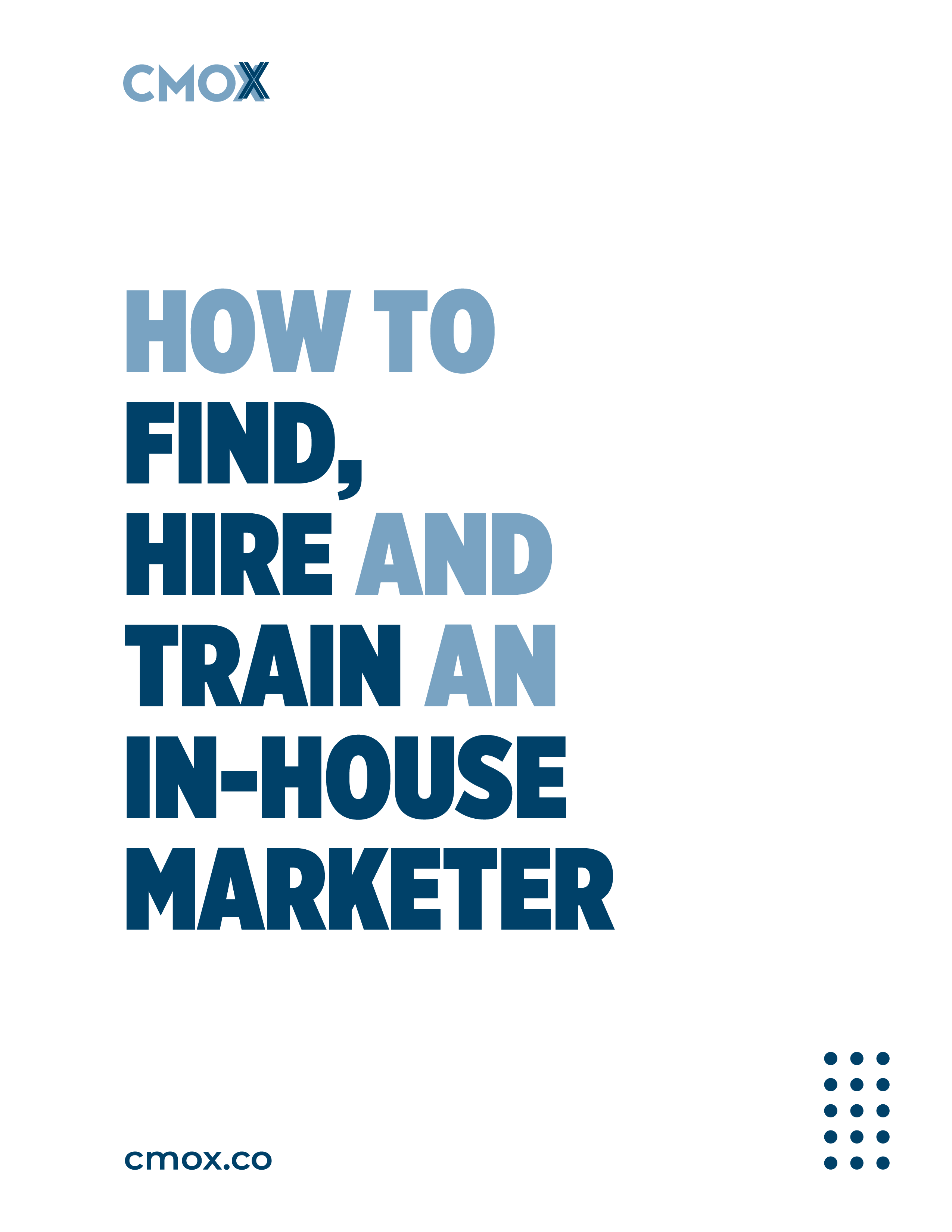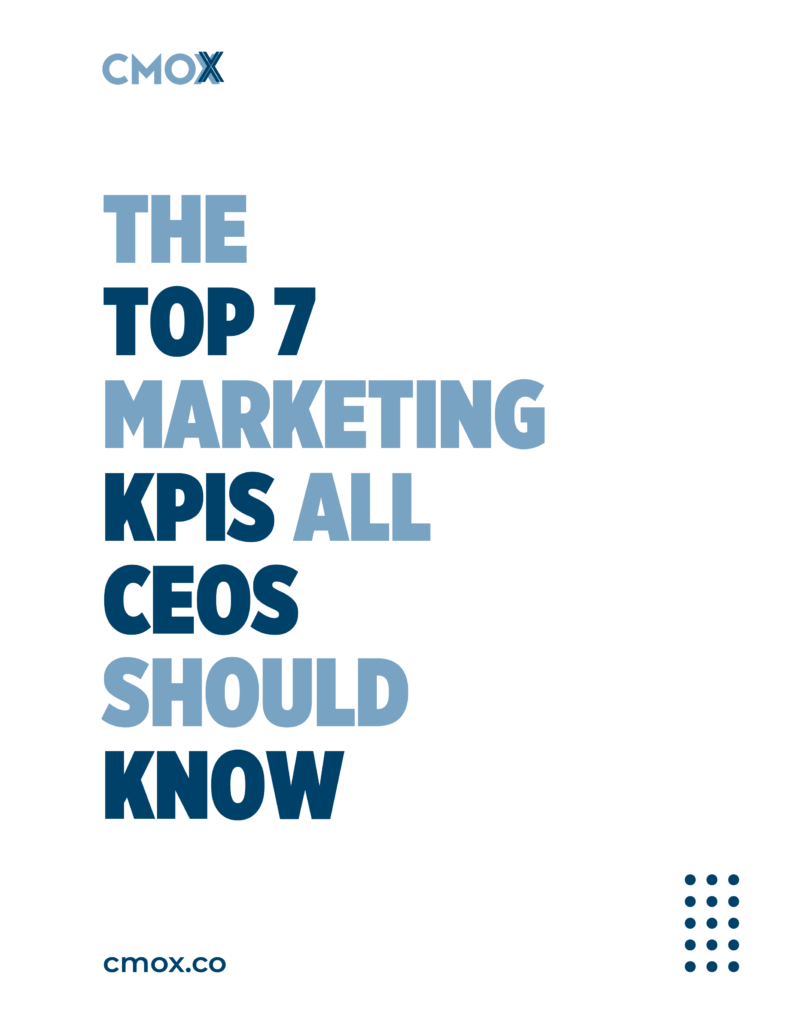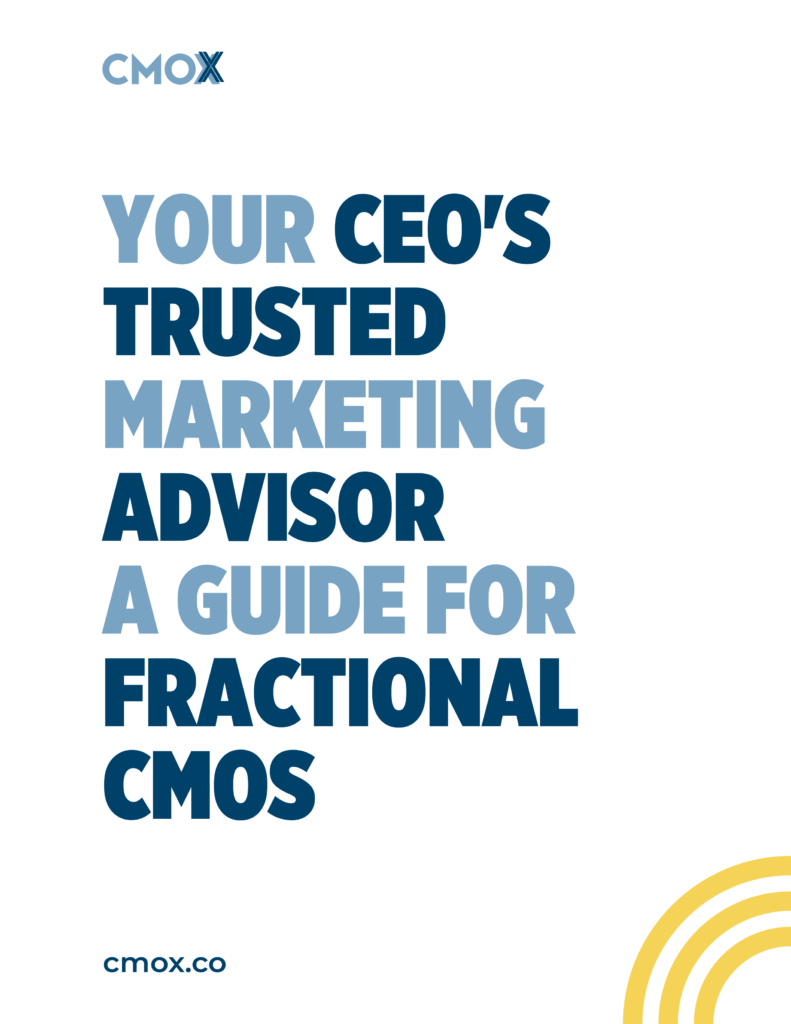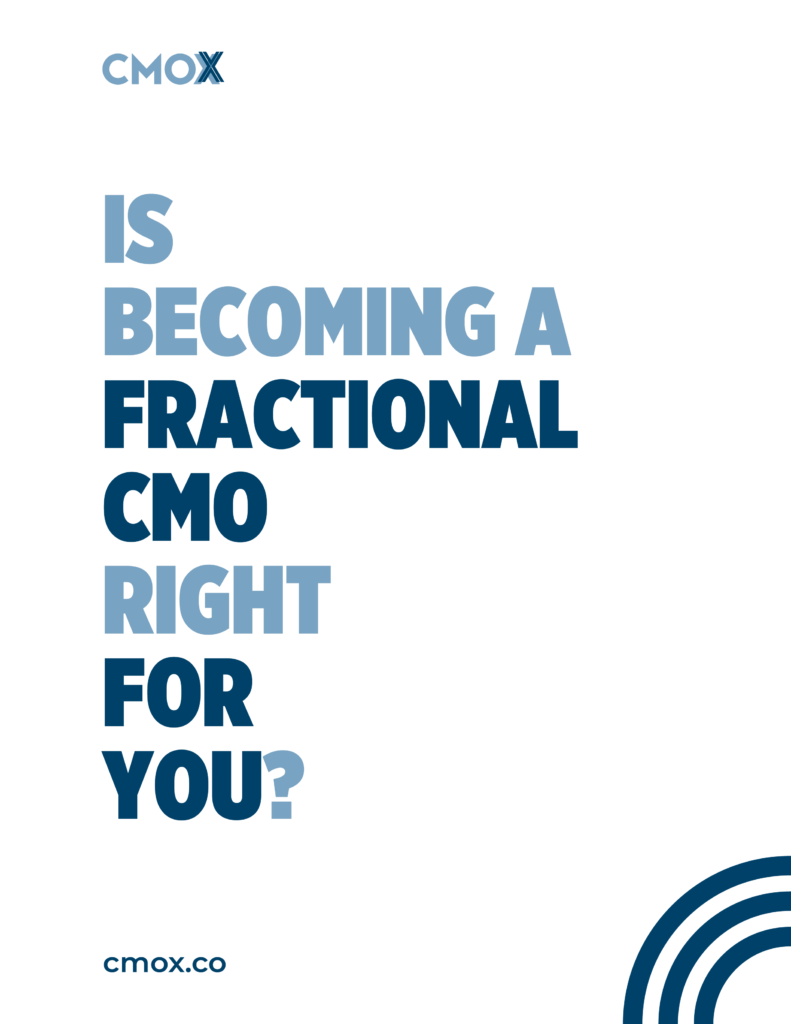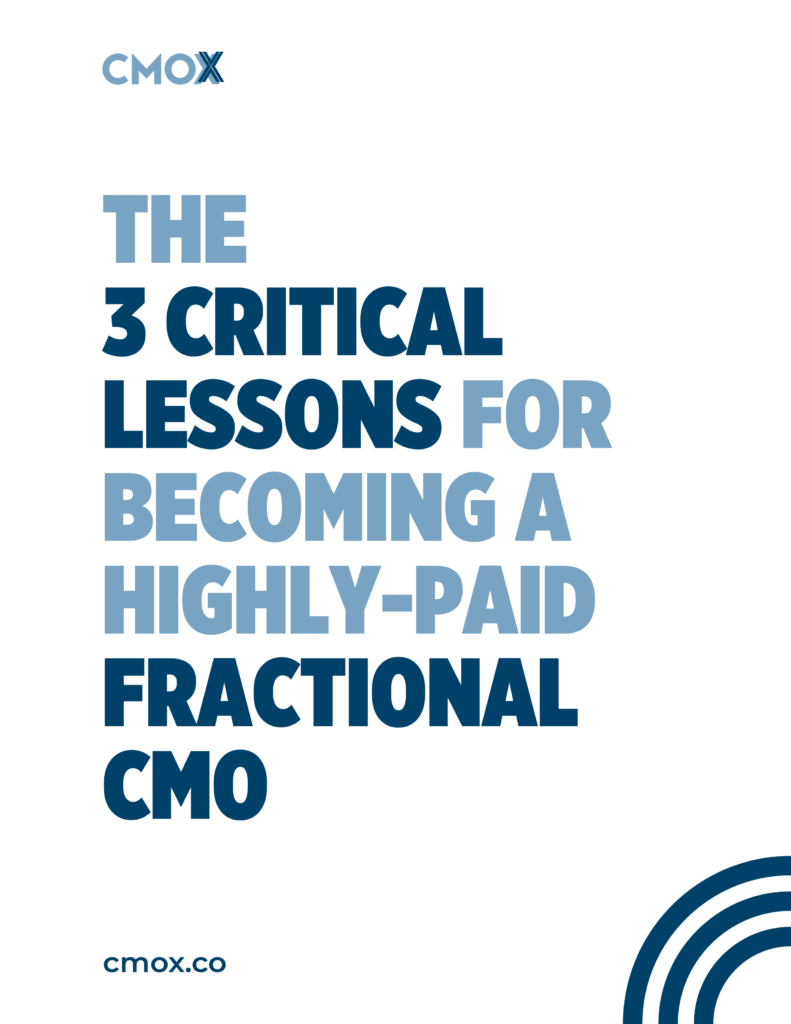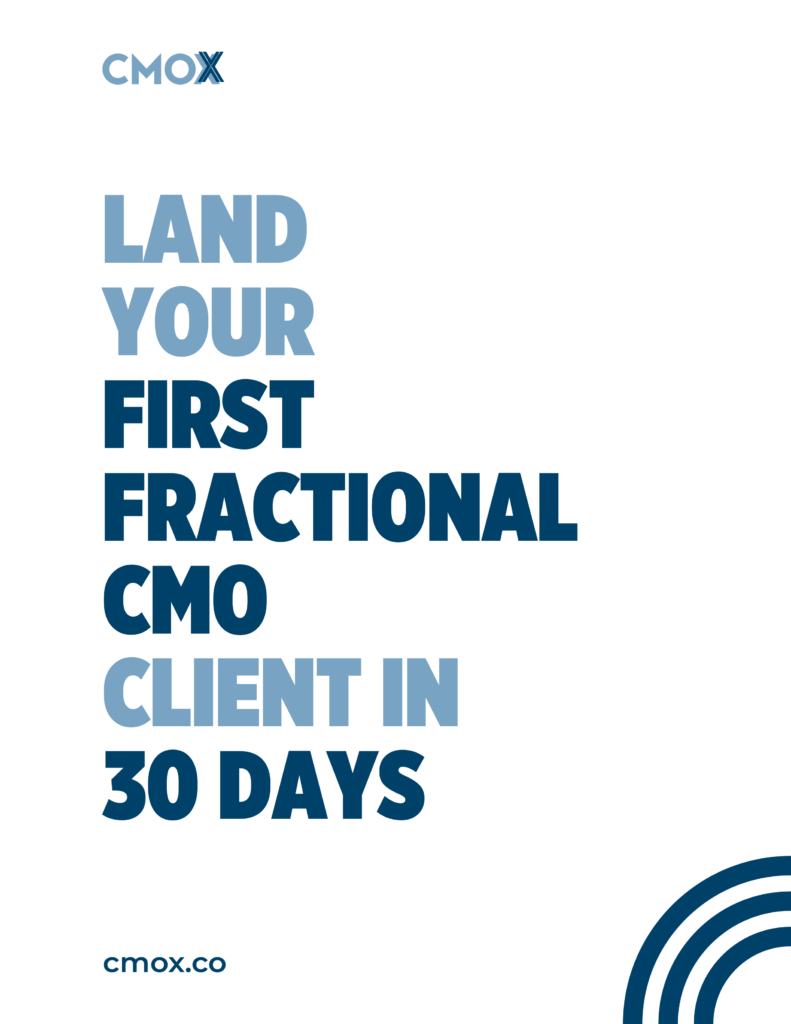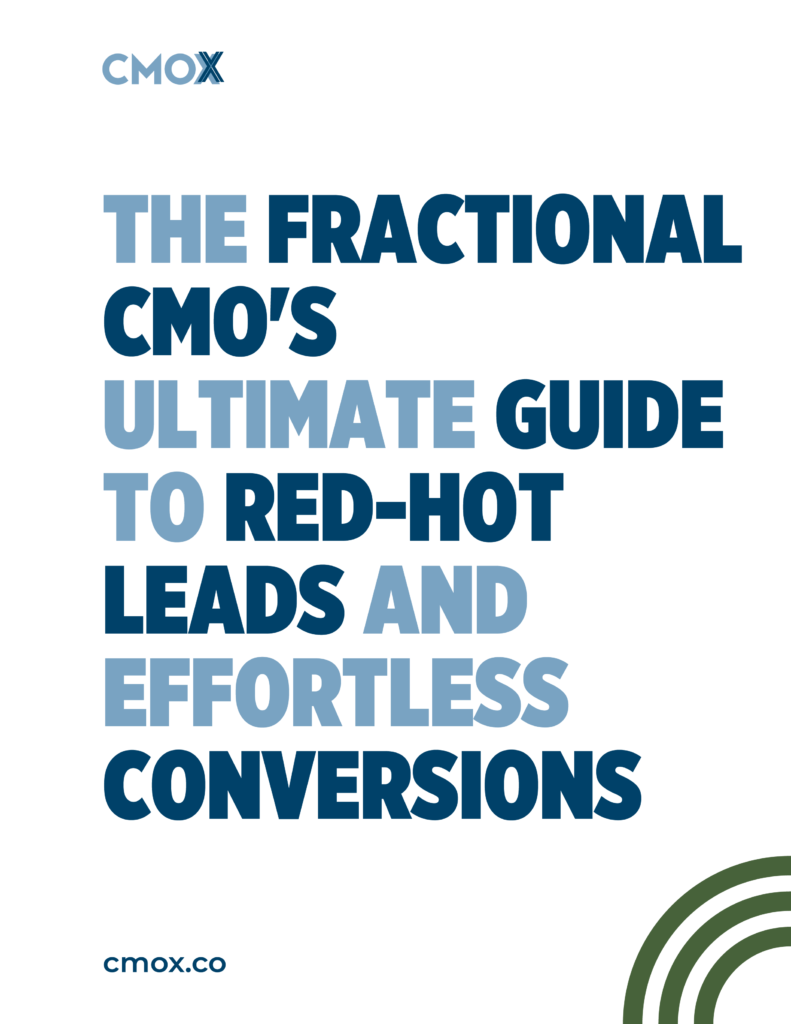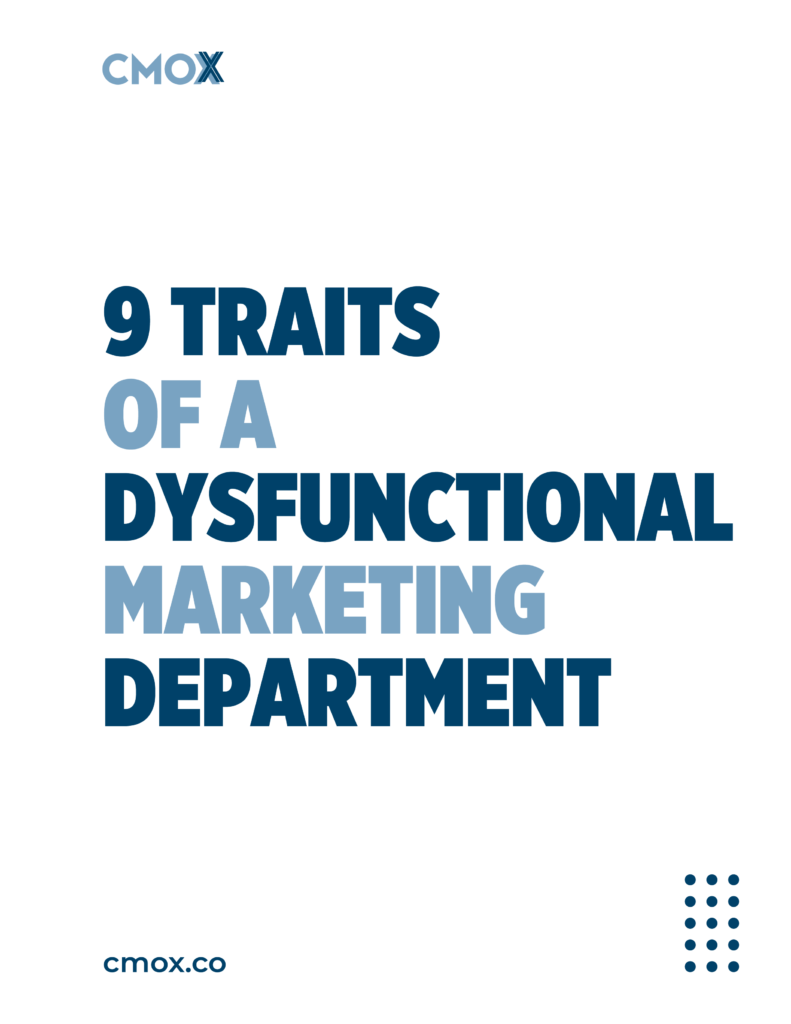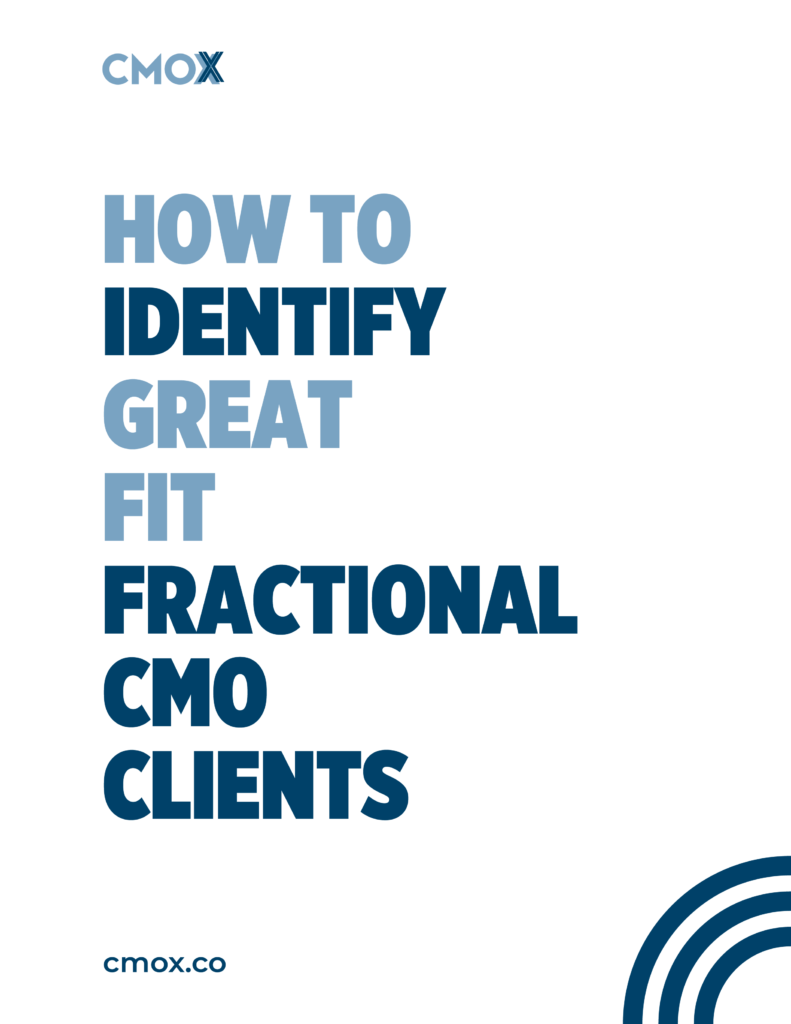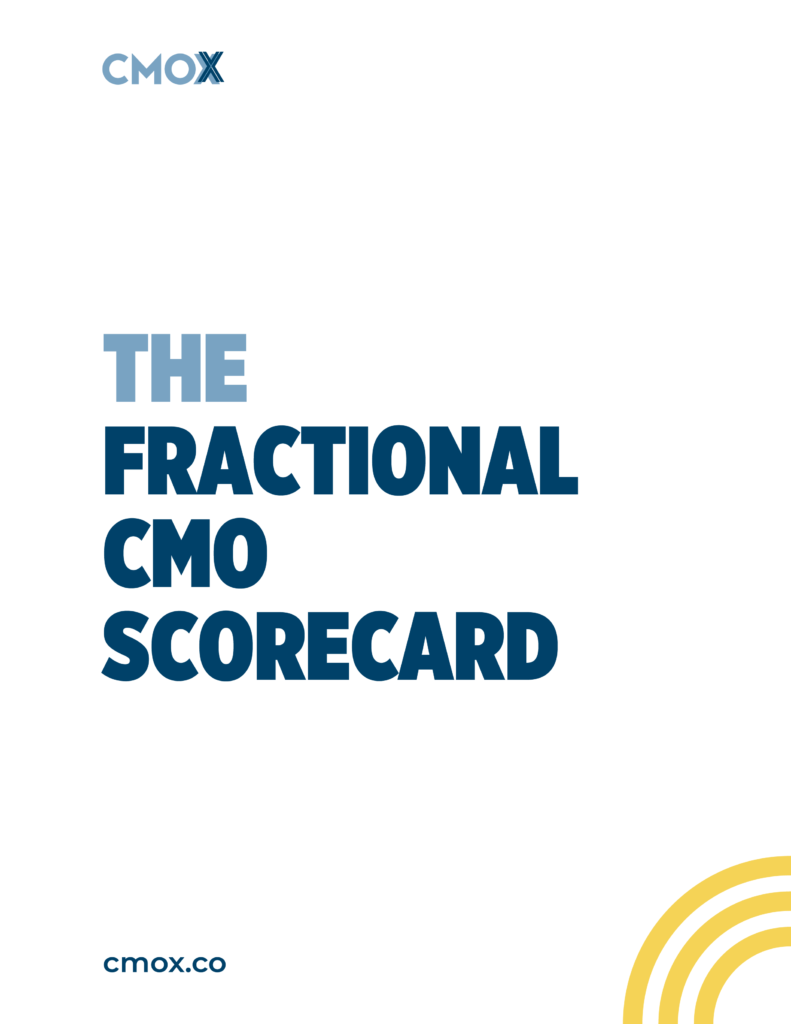No business or organization can survive without marketing, especially in increasingly crowded and competitive markets. Marketing helps companies to stand out from the crowd, draw the right attention, and grow their customer base. That’s why marketing consultants are more in demand than ever which may lead you want to start a consulting business to capitalize on that demand.
Though many companies have in-house marketing departments, a skilled marketing consultant has much more freedom, flexibility, and earning potential than their salaried counterparts.
CMOx outlines what starting your own marketing consulting business entails and why consultants may consider becoming a fractional CMO instead.
Steps to Take Before Starting a Marketing Consultancy
Building a successful consulting business takes time, patience, and focus—backtracking to fix mistakes and refocus your goals is the last thing you need. By crafting a solid business plan and setting concrete, achievable goals, you can create forward momentum to help the business-building process go as smoothly as possible.
The basic steps to starting your own marketing consultancy include:
- Determine Your Expertise
- Develop a Plan
- Create a Portfolio of Work
- Determine Your Rate
- Build Your Client Base
1. Determine Your Expertise
Choosing a niche has several advantages for your and your business, including:
- Allowing you to hone a specific set of skills
- Helping you stand out from the crowd
- Focus your self-marketing efforts on a single area
Rather than attempting to be a jack of all trades and delivering mediocre results, niching down enables you to master key skills and information. This allows you to bring more value to your clients and builds your good reputation.
When deciding on a niche, you can choose between a particular set of marketing strategy consulting services you offer or focus on a single industry. For instance, you may specialize in marketing automation or tailor your services to the healthcare industry.
2. Develop a Plan
Deciding on a niche helps inform your business plan. By looking at competitors for your chosen industry or services, you can understand what profitable consulting businesses look like and how to compete.
You can then use that framework to fill in a basic business plan, like this one:
- Executive Summary: description of the business
- Overviews and objectives: goals and needs of the business
- Services: what you offer your clients
- Marketing plan: how you’ll market your services
- Competitive analysis: an overview of your competitors
- Operations: daily business processes and procedures
- Financial analysis: expense needs, budget-setting, and profit percentages
3. Create a Portfolio of Work
Much like test-driving a car or reading reviews on Yelp, potential customers want to know they’re getting something of quality for their hard-earned money. A robust portfolio proves you’re as good as you say you are.
A marketing portfolio is usually comprised of previous marketing campaigns and an analysis of their success. Be sure to include areas where you saved your clients money or came in under budget.
4. Determine Your Rate
When you work in-house, your salary is often fixed with raises moving you up the ladder more slowly than you’d like. As a consultant, you set and adjust your rates based on how much you want to earn. You’ll want to charge enough to cover the costs of running your business and pay yourself while remaining competitive in the market.
Conversely, setting your prices slightly higher than the competition could make you more attractive to high-rolling customers. Lower-than-average rates are often associated with subpar services, whereas higher rates convey you’re worth the extra expense.
5. Build Your Client Base
When building a your own consulting business, the final piece of the puzzle is building a strong client base you can both work for and use as a network to grow your consultancy. In the 21st century, networking online is just as important as in-person interactions—if not more.
Social media is your best friend when it comes to networking. Build a polished, professional-looking page, follow potential clients and other industry professionals, and flesh everything out with exciting blog posts, customer testimonials, and relevant articles from industry news sources. Business accounts on these platforms are usually free.
As your business grows, you can create a website to showcase your services and add to a business card. Attending conferences and promotional events—both online and in person—will make you more visible to your target demographic.
Why You’d Want to Start Your Own Marketing Consultancy
When you start your own marketing consultancy, you make all the decisions. There’s no more frustration around processes that don’t make sense or having ideas shut down because of office politics. Instead, you have the opportunity to truly unleash your talent and creativity with little to no restriction. It also allows you to build a life aligned with your personal values and goals.
Control Over the Types of Clients You Take
Every business and organization needs marketing in order to achieve its goals. When you work in-house, which goals you support are entirely dependent on the company you work for. Once you break away from your in-house position, you have greater freedom to help companies and organizations more closely aligned with your personal values.
For instance, you may be incredibly passionate about non-profit charities, businesses that support animal welfare or environmental initiatives—or simply want to work within an industry with higher earning potential, like information technology.
Move Away from an In-House Position
Working in-house as a marketing professional has a lot of advantages, including stability, plenty of resources, and the ability to simply focus on your work without managing the business itself.
However, the trade-off is you’re working to achieve someone else’s goals instead of your own. Moving away from an in-house position enables you to run your business and work toward goals that benefit you and your future. Not to mention, consultants have a much higher earning potential than most in-house employees.
Why You Should Consider Becoming a Fractional CMO Instead
Though starting your own business eliminates many of the pain points and pitfalls of working in-house for a particular company, it comes with its own significant hurdles. Building and managing your own business is fraught with challenges—from standing out in a competitive industry to managing first-year overhead with little to no profit.
That’s not to say becoming a fractional CMO (fCMO) is easy. It takes about 1.5 times more work to achieve fCMO status—but the rewards are well worth the effort. As an fCMO, you can:
- Double your earning potential (approximately $200-300 per hour, on average)
- Enjoy all the freedoms and benefits of running your own business
- Access resources and support similar to that of an in-house position
Our Accelerator program will show you how to become an in-demand, process-driven fCMO sought-after by local clients.
Check out our introductory video to see if you have what it takes to become a highly paid, highly effective fCMO.


